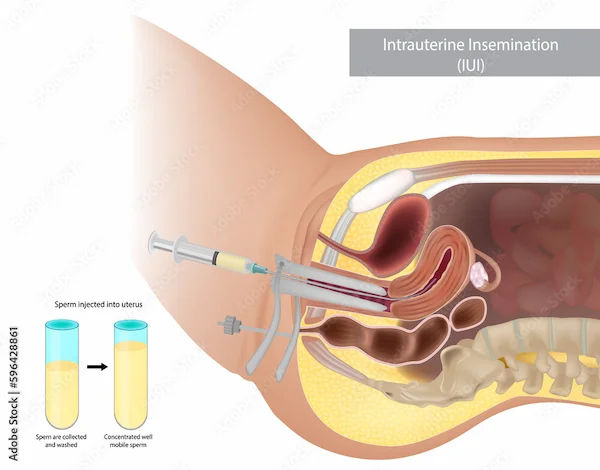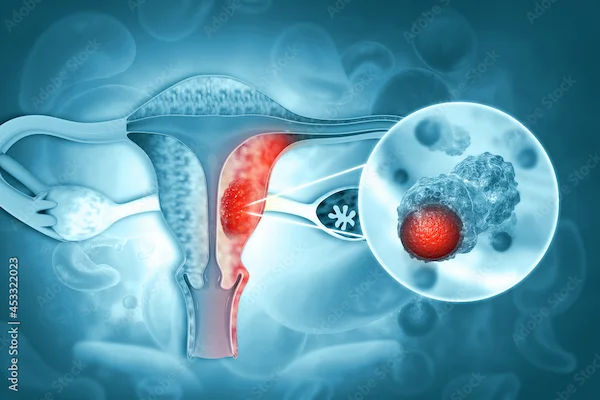Understanding IUI: Risks, Success Rates And Uses
Explore IUI (Intrauterine Insemination) in detail, including its risks, success rates, and uses. Learn when it's recommended, how it works, and what to expect from the procedure.

Written by Dr. Sonia Bhatt
Last updated on 3rd Jul, 2025

Introduction
Infertility can be a challenging and emotional experience for many couples. While there are several ways to approach assisted reproductive technology (ART), one of the most common and less invasive procedures is Intrauterine Insemination (IUI). If you are struggling to conceive, you might be considering IUI as an option. But how does IUI work? What are the potential risks? And what is the likelihood of success?
What Is IUI?
Intrauterine Insemination (IUI) is a fertility treatment that involves placing sperm directly into the uterus around the time of ovulation. The goal is to increase the number of sperm that reach the fallopian tubes, improving the chances of fertilisation.
IUI is often used for couples facing mild male infertility (low sperm count or motility), unexplained infertility, or issues like cervical mucus problems. It is also an option for single women or same-sex couples who wish to conceive using donor sperm.
The Uses of IUI
IUI can be recommended for several reasons. Below are the common scenarios in which IUI may be considered:
1. Mild Male Infertility
IUI is a viable option for couples where the male partner has mild sperm issues. These could include low sperm count, reduced sperm motility, or abnormal sperm shape. By placing sperm directly into the uterus, IUI bypasses some of the barriers sperm may face in reaching the egg.
2. Unexplained Infertility
When the cause of infertility is not clear after testing, IUI may be suggested as a treatment option. The procedure can help by improving the chances of conception through a more direct route for sperm to meet the egg.
3. Cervical Mucus Problems
If a woman has problems with her cervical mucus, such as being too thick or hostile to sperm, IUI can help. The procedure bypasses the cervix, depositing sperm directly into the uterus, where they can travel more freely to fertilise the egg.
4. Ovulatory Disorders
Women who have irregular ovulation or polycystic ovary syndrome (PCOS) may benefit from IUI, especially when combined with fertility drugs that stimulate ovulation.
5. Donor Sperm
For single women or same-sex couples, IUI is often used in conjunction with donor sperm to achieve pregnancy. In this case, sperm from a sperm bank is inserted into the uterus at the right time in the menstrual cycle.
IUI Procedure: What to Expect
The IUI process generally involves a few straightforward steps:
Monitoring Ovulation: Prior to IUI, your doctor will monitor your ovulation cycle using blood tests and ultrasounds. This helps determine the optimal time for insemination.
Sperm Preparation: The sperm from your partner or a donor is collected and "washed." This process separates the sperm from the seminal fluid, removing any impurities or bacteria and concentrating the healthiest sperm.
Insemination: During the procedure, a thin catheter is used to insert the prepared sperm directly into the uterus. The procedure is relatively quick and not typically painful, though some women may experience mild cramping or discomfort.
Post-Insemination: After the insemination, you may be asked to lie down for about 15-30 minutes. There is no need for a long recovery time. You can resume normal activities, though your doctor may advise against intense physical exertion for a day or two.
The procedure is typically carried out in a clinic or fertility centre and doesn’t require anaesthesia. It’s an outpatient procedure, meaning you can go home the same day.
Success Rates of IUI
Success rates for IUI vary depending on several factors, including the woman’s age, the cause of infertility, and whether fertility drugs are used. On average, the success rate for IUI in women under 35 years old is around 10-20% per cycle, but this can be higher with the use of fertility medications like Clomid or gonadotropins.
Factors Influencing IUI Success Rates:
Age: Women under 35 have the best chance of success, as fertility declines with age.
Sperm Quality: The quality of sperm, whether from the partner or a donor, significantly impacts the chances of conception.
Ovarian Reserve: A woman’s ability to produce healthy eggs can impact the success of the procedure.
Underlying Fertility Issues: If a woman has conditions like endometriosis or severe ovulatory disorders, success rates may be lower.
Use of Fertility Drugs: Fertility drugs may help increase the chances of IUI success by stimulating ovulation and producing more than one egg.
It’s important to understand that IUI is often not a one-time solution. Many couples will need multiple cycles to achieve a successful pregnancy. Your doctor will work with you to determine how many cycles of IUI are appropriate based on your situation.
IUI Risks and Side Effects
While IUI is generally considered safe, like all medical procedures, it does carry some risks and potential side effects. Understanding these risks will help you make an informed decision.
1. Multiple Pregnancy
One of the biggest risks associated with IUI is the chance of multiple pregnancies (twins, triplets, etc.). This risk increases when fertility drugs are used, as they can cause multiple eggs to be released during ovulation. While multiples are not inherently dangerous, they come with increased risks for both the mother and the babies, including preterm birth and low birth weight.
2. Ovarian Hyperstimulation Syndrome (OHSS)
If fertility drugs are used to stimulate ovulation, there is a risk of OHSS, a condition where the ovaries become swollen and painful. In severe cases, OHSS can cause nausea, vomiting, and shortness of breath and may require hospitalisation.
3. Infection
Though rare, there is a slight risk of infection from the catheter insertion during the IUI procedure. Your doctor will take steps to ensure a sterile environment to minimise this risk.
4. Ectopic Pregnancy
In rare cases, an ectopic pregnancy, where the fertilised egg implants outside the uterus, may occur. This serious condition can cause complications and require immediate medical attention.
5. Emotional and Psychological Stress
The emotional toll of infertility treatments, including IUI, can be significant. The uncertainty of the outcome and the potential for multiple cycles can lead to stress, anxiety, and even depression. If needed, it’s important to seek emotional support from a therapist or support group.
Key Takeaways
IUI is a minimally invasive fertility treatment designed to increase the chances of conception by introducing sperm directly into the uterus during ovulation.
It is often used for mild male infertility, unexplained infertility, cervical mucus problems, and ovulatory disorders and is a common choice for women using donor sperm.
Success rates for IUI vary depending on factors like age, sperm quality, and the use of fertility medications. On average, success rates are around 10-20% per cycle.
IUI carries some risks, including the possibility of multiple pregnancies, ovarian hyperstimulation syndrome (OHSS), infection, and in rare cases, ectopic pregnancy. Emotional stress can also be a factor.
It is crucial to work closely with your fertility specialist to determine if IUI is the right option for you and to discuss any concerns about the procedure.
Conclusion
IUI is a valuable fertility treatment that offers many couples a path to parenthood. While it is a relatively simple procedure, understanding the risks and success rates can help you make an informed decision. If you are considering IUI, take time to discuss your options with your healthcare provider to determine the best course of action for you and your family. Remember, fertility treatments can take time, and every journey is unique. Stay patient, stay positive, and know that support is always available.
Consult Top Gynaecologists
Consult Top Gynaecologists

Dr. Priyanka Surisetty
Obstetrician and Gynaecologist
8 Years • MBBS, DGO
Visakhapatnam
Apollo 24|7 Clinic - Andhra Pradesh, Visakhapatnam

Dr Swatika Kumari
Obstetrician and Gynaecologist
19 Years • MBBS, DGO, DNB Obstetrics & Gynaecology
Nashik
Apollo 24|7 Clinic - Maharashtra, Nashik

Dr. Veena H
Obstetrician and Gynaecologist
16 Years • MBBS DGO
Bangalore
Apollo 24|7 Clinic - Karnataka, Bangalore

Dr. Prakash Das
Obstetrician and Gynaecologist
10 Years • MBBS, MS (Obstetrics & Gynaecology)
Avenue
Wellness Point, Avenue

Dr. Ritika Khurana
Obstetrician and Gynaecologist
16 Years • MBBS, DGO(GYNAECOLOGY AND OBSTETRICS)
Pune
Dr Rupali and Dr Ritika, Pune



